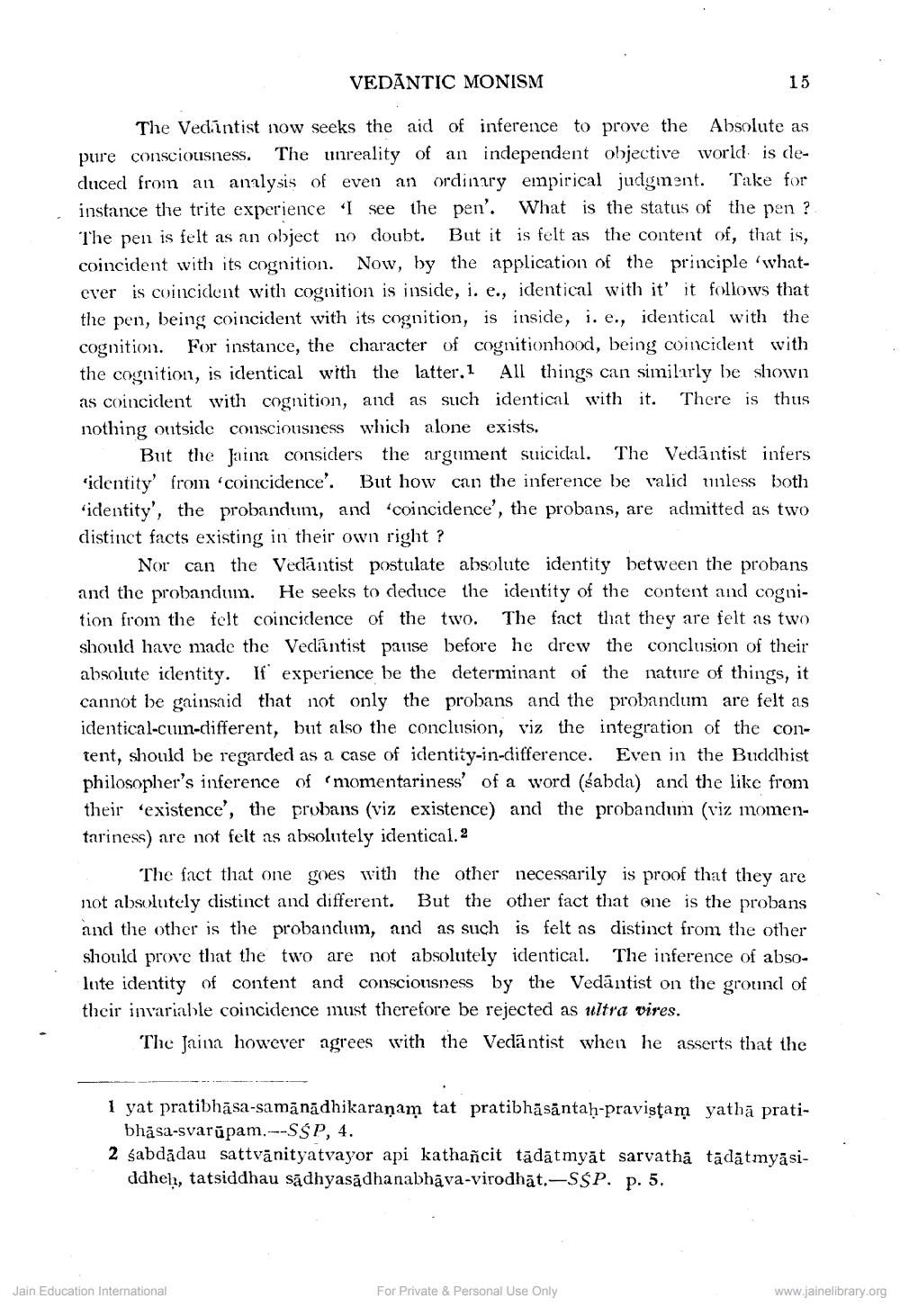________________
VEDANTIC MONISM
15
The Vedāntist now seeks the aid of inference to prove the Absolute as pure consciousness. The unreality of an independent objective world is deduced from an analysis of even an ordinuy empirical judgment. Take for instance the trite experience I see the pen'. What is the status of the pen ? The pen is felt as an object no doubt. But it is felt as the content of, that is, coincident with its cognition. Now, by the application of the principle "whatever is coincident with cognition is inside, i. e., identical with it' it follows that the pen, being coincident with its cognition, is inside, i. e., identical with the cognition. For instance, the character of cognitionhood, being coincident with the cognition, is identical with the latter.1 All things can similarly be shown as coincident with cognition, and as such identical with it. There is thus nothing outside consciousness which alone exists.
But the Jaina considers the argument suicidal. The Vedāntist infers 'identity' from 'coincidence'. But how can the inference be valid unless both 'identity', the probandum, and coincidence', the probans, are admitted as two distinct facts existing in their own right?
Nor can the Vedāntist postulate absolute identity between the probans and the probandum. He seeks to deduce the identity of the content and cognition from the felt coincidence of the two. The fact that they are felt as two should have made the Vedāntist pause before he drew the conclusion of their absolute identity. If experience be the determinant of the nature of things, it cannot be gainsaid that not only the probans and the probandum are felt as identical-cuin-different, but also the conclusion, viz the integration of the content, should be regarded as a case of identity-in-difference. Even in the Buddhist philosopher's inference of momentariness' of a word (sabda) and the like from their 'existence', the probans (viz existence) and the probandum (viz momentariness) are not felt as absolutely identical.2
1 The fact that one goes with the other necessarily is proof that they are not absolutely distinct and different. But the other fact that one is the probans and the other is the probandum, and as such is felt as distinct from the other should prove that the two are not absolutely identical. The inference of absolute identity of content and consciousness by the Vedāntist on the ground of their invariable coincidence must therefore be rejected as ultra vires.
The Jaina however agrees with the Vedāntist when he asserts that the
1 yat pratibhāsa-samanadhikaranam tat pratibhāsāntah-pravistam yathā prati
bhāsa-svarūpam.--SŚP, 4. 2 sabdādau sattvānityatvayor api kathancit tādātmyāt sarvathā tādātmyasi
ddheḥ, tatsiddhau sādhyasādhanabhāva-virodhāt.-SSP. p. 5.
Jain Education International
For Private & Personal Use Only
www.jainelibrary.org




